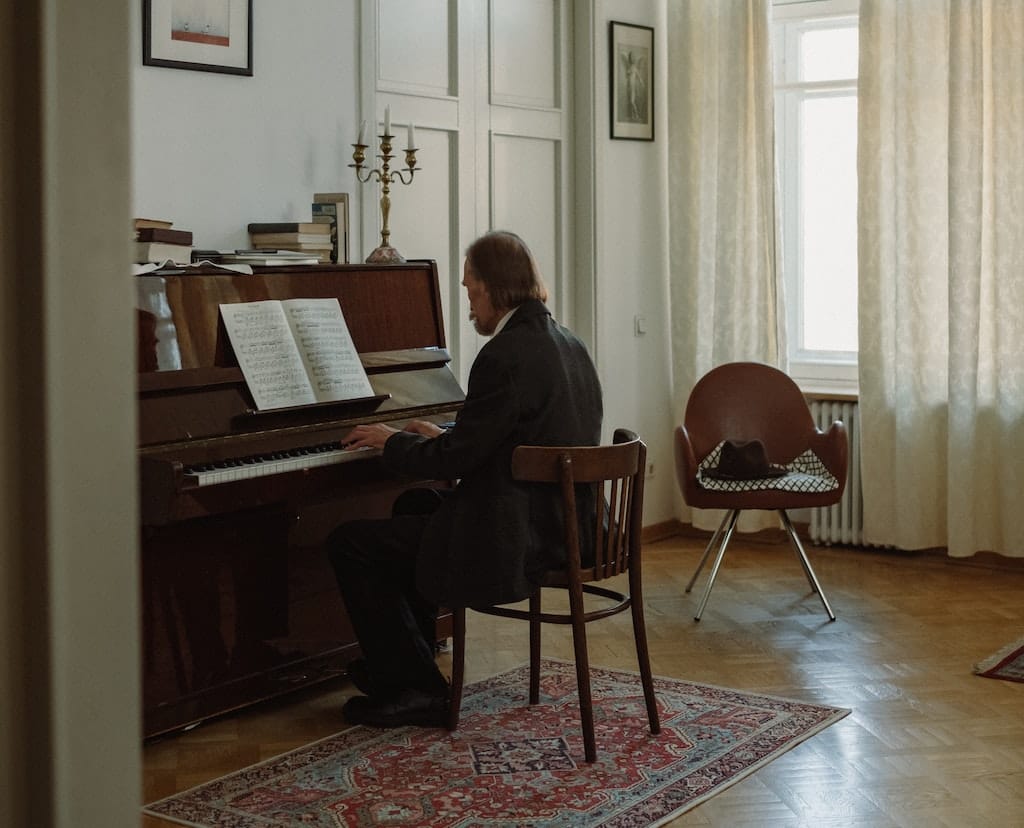Why is classical music good for the mind?

From the haunting melodies of Beethoven’s “Moonlight Sonata” to the grand symphonies of Mozart and the soul-stirring compositions of Bach, classical music has stood the test of time, captivating audiences for centuries. Beyond its artistic allure, recent scientific studies have revealed that the enchanting harmonies of classical music offer far more than auditory pleasure. The profound effects of this genre on the brain have sparked curiosity among researchers and music enthusiasts alike.
The Power of Classical Music: Beyond Aesthetic Pleasure
Classical music, characterized by its rich complexity and emotional depth, has long been appreciated as a pinnacle of human creativity. Its ability to convey a vast range of emotions through intricate arrangements and harmonious sequences has earned it a special place in the hearts of music lovers worldwide. But what sets classical music apart from other genres is its unique influence on the human brain.
Unraveling the Cognitive Benefits
Scientific studies have shed light on the cognitive benefits of listening to classical music. One of the most remarkable findings is its impact on focus, concentration, and memory. When immersed in the sounds of a symphony or a concerto, our brains engage in a symphony of their own, responding to the complex patterns and melodies with heightened activity in various regions.
Researchers have observed that exposure to classical music can enhance attention to tasks, allowing us to delve deeper into our work or studies with improved concentration. Moreover, it appears to sharpen memory retention, making it a potentially effective study aid or tool for those seeking to improve cognitive function.
The Emotive Journey of Classical Compositions
Beyond its cognitive influence, classical music is known for its remarkable ability to evoke emotions within listeners. The carefully crafted compositions trigger a cascade of emotional responses, creating a profound connection between the music and the mind. From feelings of elation during uplifting crescendos to contemplation during gentle adagios, classical music can paint an intricate tapestry of emotions in the listener’s heart.
Research has shown that listening to classical music can activate brain regions associated with emotional processing, leading to a sense of well-being and inner harmony. For many, it serves as a therapeutic escape, offering solace during stressful times or providing a refuge from the fast-paced world we inhabit.
The Cognitive Wonders of Classical Music
Classical music has long been celebrated as a muse for creative minds. The intricate compositions, woven together with emotion and intellect, have the uncanny ability to inspire and nurture creativity. Many renowned artists, writers, and innovators have attested to the role of classical music in unlocking their creative potential.
Researchers have found that listening to classical music can trigger a state of heightened creativity, allowing individuals to approach problems with innovative perspectives. The fluid and organic nature of classical compositions may encourage “out-of-the-box” thinking, enabling individuals to discover novel solutions to complex challenges.
A Symphony of Stress Reduction and Relaxation
In the fast-paced modern world, stress has become an almost constant companion. Fortunately, the soul-soothing notes of classical music offer an escape from the chaos. Scientific evidence suggests that listening to classical music can induce a relaxation response, helping to reduce stress levels and restore a sense of inner calm.
The serene harmonies and gentle rhythms of certain classical pieces can slow down the heart rate and promote deep breathing, mimicking the body’s relaxation response. Moreover, the emotional journey offered by classical music can act as a cathartic release, allowing listeners to release pent-up emotions and find solace in the melodies.
Classical Music and Brain Development in Children
The influence of classical music is not limited to adults; it extends to the developing minds of children as well. The “Mozart Effect,” a term coined from a study suggesting improved spatial-temporal reasoning after listening to Mozart’s music, has sparked interest in the relationship between classical music and early brain development.
Exposing children to classical music during their early years may contribute to the development of neural connections, particularly in brain areas responsible for spatial reasoning, language, and mathematical abilities. Many educational programs now incorporate classical music into their curricula to enhance learning and cognitive development in children.
The Role of Neuroplasticity: Shaping Minds with Music
Neuroplasticity, the brain’s remarkable ability to adapt and rewire itself in response to experiences, plays a pivotal role in classical music’s impact on the brain. Regular exposure to classical music can shape neural connections, forging pathways that promote cognitive flexibility and adaptability.
Moreover, the brain’s responsiveness to music can vary with the individual’s emotional state, personal experiences, and musical background. This unique interaction between music and the brain highlights the complexity of this relationship and the potential for personalized benefits.
Music for Health and Well-being
In times of emotional turmoil and distress, classical music offers a soothing balm to the wounded soul. Music therapy, a discipline that utilizes music to address emotional, cognitive, and physical challenges, has gained recognition for its efficacy in promoting mental health. Classical music, with its intricate harmonies and soul-stirring melodies, is a key component of many music therapy programs.
Research has demonstrated that classical music can be effective in alleviating symptoms of anxiety and depression. The emotive journey through the music provides a safe space for individuals to process their emotions, offering a release from the weight of their struggles. Music therapy sessions often incorporate classical compositions, allowing participants to connect with their emotions and find solace in the comforting embrace of the music.
The Therapeutic Power of Classical Music
Beyond its emotional healing properties, classical music has also proven to be a valuable aid in treating insomnia and improving sleep quality. The gentle cadences and tranquil rhythms can induce a state of relaxation, helping individuals to drift into a more restful slumber. Many individuals have found respite from sleep disturbances by incorporating classical music into their bedtime routines.
Moreover, the engagement of the brain during musical experiences has been linked to the release of endorphins, which are natural mood enhancers. This chemical reaction contributes to a sense of euphoria and overall well-being, making classical music an enjoyable tool for promoting mental health.
The Symphony of Music Therapy Programs
Music therapy has found a place in a wide range of healthcare settings, including hospitals, rehabilitation centers, and mental health clinics. Trained music therapists utilize classical music to tailor interventions that address individual needs, supporting the healing journey of patients and clients.
In dementia care, classical music has shown promise in enhancing cognitive function and reducing agitation. The familiar tunes of beloved compositions can evoke memories and emotions, fostering connections with the world around them.
Classical Music for Holistic Well-being
Beyond therapeutic applications, classical music offers a path to holistic well-being for all individuals. The serene melodies can act as a refuge from the frenetic pace of modern life, providing moments of introspection and self-discovery.
Listening to classical music can become a meditative practice, promoting mindfulness and a heightened awareness of the present moment. The union of mind and music creates a symbiotic experience, where listeners become attuned to the subtleties of the music and the intricacies of their own thoughts and emotions.
As we conclude our exploration of the impact of classical music on the brain, we invite you to embrace the healing harmony of this timeless genre. Whether you seek cognitive enhancement, emotional solace, or a moment of respite, classical music stands as a symphony of possibilities, waiting to resonate with your soul.





